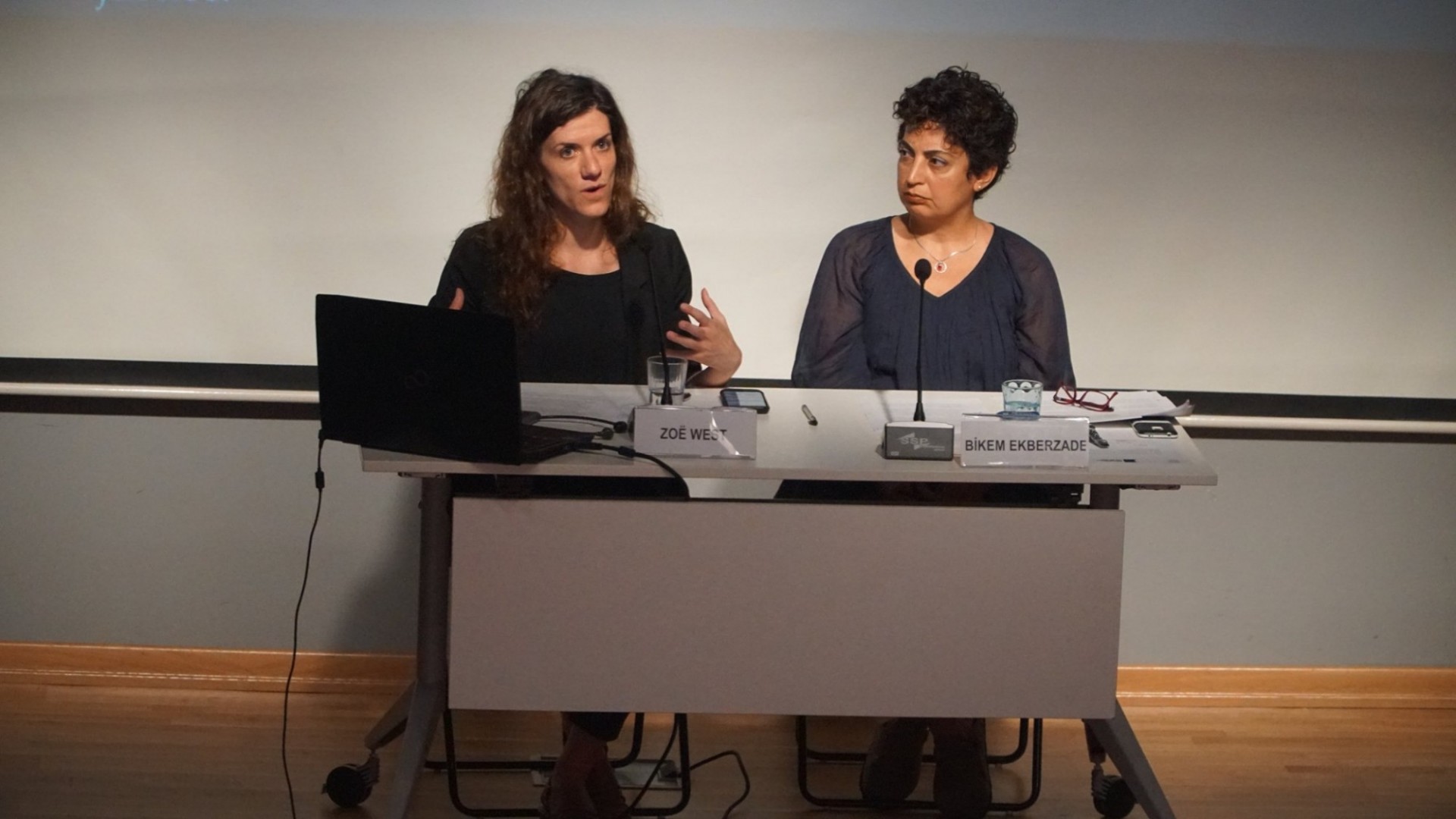Imagining Justice through Oral History

On June 12 and 13, Columbia Global Centers | Istanbul, in collaboration with the Hrant Dink Foundation, hosted Zoë West, Adjunct Faculty in the Oral History Master of Arts at Columbia University.
On June 12, Zoë gave a talk on “Imagining Justice through Oral History” in conversation with Bikem Ekberzade, journalist, photojournalist and documentary photographer. The experience of oral history interviews as well as the records they create can expand our ability to imagine justice beyond narrow legal terms and dominant narratives, and help to place the impact of harm at the center of imagining how to move forward. This talk explored the possibilities of oral history as a response to conflict, harm, and oppression. Although the space for hearing oral histories is often constrained by existing structures and relations of power, Zoë argued for the liberatory possibilities of integrating oral history into struggles for justice. Drawing on Jill Stauffer’s concept of “ethical loneliness” alongside oral history’s core principles of shared authority and deep listening, she examined how oral history interviewing can create space for genuinely hearing complex experiences of harm. Zoë explored several case studies of oral history projects, highlighting how they unsettle our understanding of what recovery or repair might require from us collectively and expand our imagination of justice.
On June 13, Zoë led a closed workshop on "Navigating Ethics, Trauma, and Risk in Oral History" for a diverse group of 14 participants, whose backgrounds included oral historians, activists, journalists, teachers, NGO workers, and photographers.
As oral history projects increasingly focus on oppression, conflict, and crisis, the workshop focused on the tools that should be equipped by researchers in confronting ethical dilemmas, trauma, and risk. During the workshop, participants explored how to be conscious of and responsive to ethical issues that are present in different stages of an oral history project, including power dynamics, accountability, political context, activist aims, and security risks. In addition to these issues, the question of trauma was another theme of the workshop. Particularly, the workshop focused on preparing for and responding to trauma before, during and after interviews; considering interviewer wellbeing; and thinking through questions of resilience, repair and healing. All these themes and questions were discussed through participatory activities and exploring case studies. Participants brought their own ideas for a future project or their current project, and left the workshop with some guidelines for thinking through ethical questions and power in oral history projects, and practices for trauma-informed interviewing.